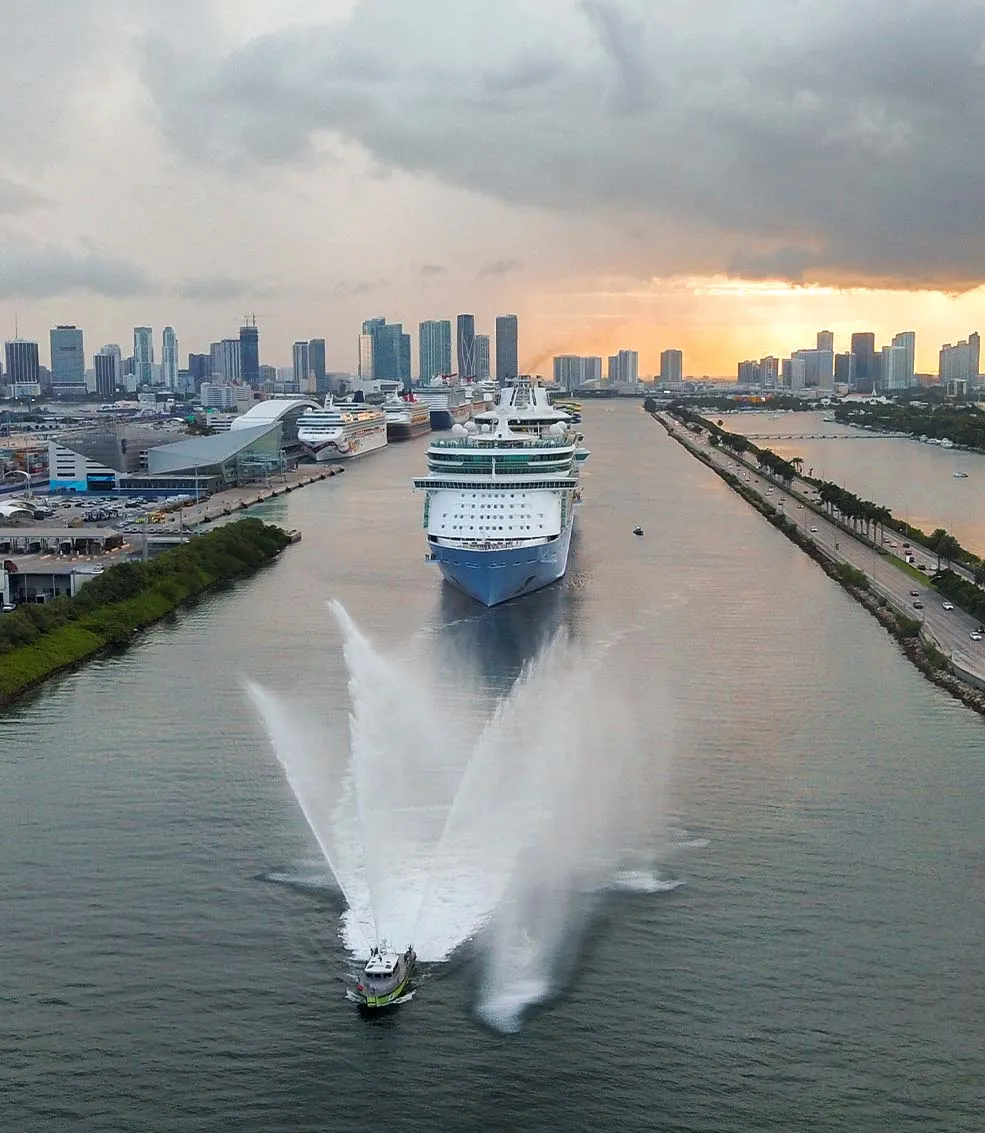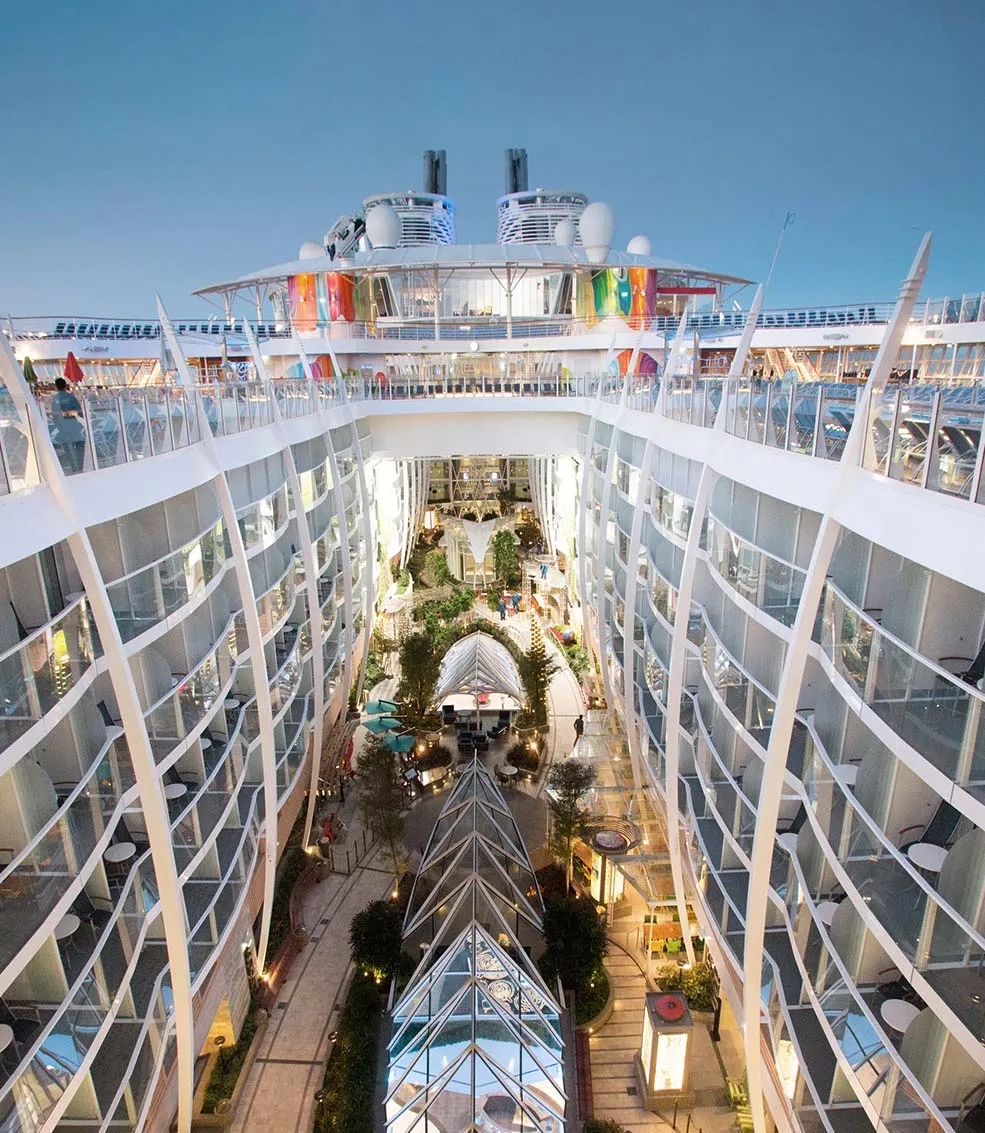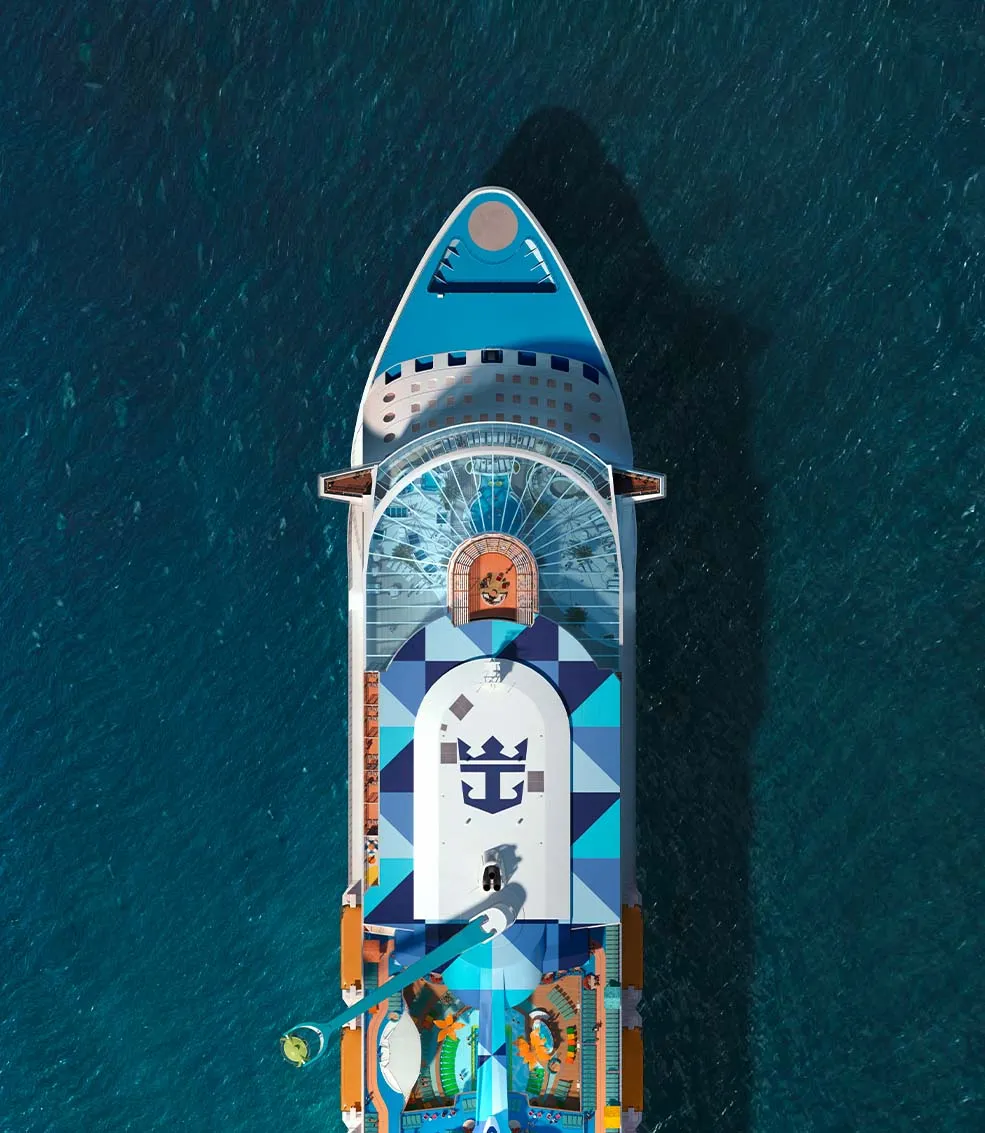Partnership with DNV key in RCLs return to service
Which challenges did cruise operators face during the pandemic? In our second article Captain Patrik Dahlgren from Royal Caribbean Cruises, Ltd. (RCL) talks about the efforts it takes to lay up a complete fleet, RCL’s return to operation plan, and how to decide which of the evolving infection prevention technologies to utilize. For all these essential decisions they had DNV at their side for support.
On 15 March 2020, RCL announced the cancellation of all their voyages worldwide within just hours of the U.S. Centers for Disease Control and Prevention (CDC) issuing the first No Sail Order for cruise ships due to the risk of cruise ship travel introducing, transmitting or spreading Covid-19.
“We’re not strangers to illness, but in this industry, we know the usual suspects. We understand how they are transmitted, how an outbreak might occur, and what measures we need to take to bring it to an end,” Captain Patrik Dahlgren, Senior Vice President of Global Marine Operations for Royal Caribbean Cruises, Ltd. (RCL), recalls. “That was not the case with Covid, and at the start of the pandemic, the scientific understanding of the virus seemed to change by the hour.”

The challenges of laying up a whole fleet
As the last passengers disembarked their vessels, Captain Dahlgren and his team from RCL’s Global Maritime Organization in Miami were busy overseeing the immense challenge of laying up RCL’s entire fleet of more than 60 vessels. Finding locations to lay up vessels and getting crew home was all but impossible with the ancillary approach to decision-making taking place on a global scale in the context of the pandemic. “Add to the mix that we are taking vessels out of service that we never intended to take out of service,” Captain Dahlgren explains. In fact, for the cruise industry, the scale of potential lay-ups was a new phenomenon. “We relied heavily on DNV’s expertise in this area as we evaluated how to best proceed. We certainly needed to optimize operational costs, but also wanted to ensure that machinery and equipment would keep working when the time came.” For passenger vessels, there is the unique challenge that comes with keeping the large hotel operations up and running through lay-up. “We had to keep enough hotel crew on board to see that the hotel areas were kept operational; we’re talking about thousands of lights, toilets, showers and faucets; rotating the use of galleys to make sure they stay in working condition. When you pull back and see the amount of machinery involved, you understand that this is a huge and complex effort.”
To see our way out of this, we knew it was going to require a collaborative effort and expertise to help develop new protocols and procedures.

Creating a return to service plan
In the early days of the pandemic, Captain Dahlgren was searching for information and sources of expertise in the field of infectious disease. “To see our way out of this, we knew it was going to require a collaborative effort and expertise to help develop new protocols and procedures,” he said. From his experience, Captain Dahlgren was aware that the depth and breadth of DNV’s expertise went far beyond that of the traditional maritime classification services. “I was told there was a division of DNV in Healthcare and that Certification in Infection Prevention (CIP-M) based on the leading healthcare standards and guidelines was a service they provided. I picked up the phone immediately because we needed to explore how we could apply that knowledge to our vessels.”

Close collaboration with DNV helped to tackle the challenges
As RCL began mapping out the steps to returning its fleet to service, DNV was brought in to provide independent third-party verification using the CIP-M programme. The certification process for the company began in September 2020 with the office audit; the first vessel audit took place in November 2020 and vessel certification is expected to continue until January 2022 as the fleet restarts operations.
“Throughout this period, our engagement with DNV and the attention that we received from every level of the organization has been extraordinary,” said Captain Dahlgren. “I had regular dialogue with Maritime CEO Knut Ørbeck-Nilssen on the outlook for our future, and the work was progressing. It was reassuring to know that we were getting attention from the very top of the organization, but that’s not altogether uncommon. We have the utmost trust in our relationship because we have always received the support needed from DNV, at any time and from any level of the organization.”

The impact of new technology for infection prevention
“We have a team of people at RCL who regularly evaluate new and novel technologies for use on board our ships,” said Captain Dahlgren. “The pandemic ushered in a whole new workload for them. In combating Covid, we were looking for specific products or being approached with new technologies, and suddenly there were hundreds of different technologies just for infection prevention that we were assessing the viability of for use on our ships.”
DNV also saw that the number of new or adapted technologies began to overwhelm the market. The rapid development brought DNV to create a third-party-structured Product Assurance service specific to infection prevention and control technologies as a means of providing increased confidence to operators during their evaluation process of the technology being considered, as well as to provide manufacturers with the opportunity to have their product application assessed for the maritime cruise market.

The Healthy Sail Panel
As an advocate for collaboration, innovation and transformation, Captain Dahlgren was among the industry stakeholders spearheading the offensive to get cruise vessels back to safe operation. While working with DNV on the return to service plan for the RCL fleet, he also launched the Healthy Sail Panel for RCL, in partnership with Norwegian Cruise Line Holdings Ltd.
“With the Healthy Sail Panel, our mission was to collaboratively develop recommendations for risk- mitigation strategies and protocols that, if implemented appropriately, advance our public health response to Covid-19, improve safety, and achieve readiness for the safe resumption of operations,” explains Captain Dahlgren, who sits on the panel. Over four months, the panel – comprised of the most recognized experts in public health, infectious disease, biosecurity, epidemiology, hospitality and maritime operations – prepared a 65-page report of detailed best practices and recommendations to address the Covid-19 situation and safe sailing protocols. The practical and actionable recommendations focused on the areas of testing, screening and exposure reduction; sanitation and ventilation; response, contingency planning and execution; destination and excursion planning; and the mitigation of risk for crew members.

An emotional comeback to cruise
After a 15-month standstill of cruise operations, on 26 June 2021 the RCL vessel Celebrity Edge became the first revenue cruise to set sail from a U.S. port since the pandemic. The vessel was approved to sail, having met all the new standards for providing a healthy and safe cruise experience. There was a requirement for 95% of the people on board to be vaccinated, but when leaving Port Everglades, Celebrity Edge sailed under the restricted passenger operations but with 100% of the crew and passengers of eligible age vaccinated. With its vessel Freedom of the Seas, RCL explored another alternative to test operations, following CDC requirements for a simulated voyage with land-based employee volunteers as passengers. The three-day simulation voyage departed with authorities from the CDC and DNV on board as observers to confirm that the procedures were followed.
These first sailings were very emotional experiences for RCL. “Our crew spend so much time on board that the vessel becomes their home. The out-of-service period was hard on them in many ways but returning to the ship was really a family reunion. Everyone was overjoyed,” Captain Dahlgren remembers. “Same goes for our guests, with many of them being loyal to RCL. They were excited to be back cruising. The Net Promoter Score given by our guests indicates that the experience exceeded their expectations.”

Establishing new routines on board
While some changes on board may be noticeable to passengers, like hand sanitizer stations and Covid testing, many of the differences are minor, and the experience is essentially unchanged. In fact, when the percentage of passengers vaccinated is high enough, masks are not required while on board. Off the ship, passengers were initially permitted to only participate in RCL-managed excursions in ports of call.
“Our priority is the safety of our passengers, crew and the destinations we visit,” Captain Dahlgren emphasizes. “Doing that comes down to controlling the variables. With our procedures and protocols in place, we greatly reduce the chance of Covid getting on board. If it does, we can take action to contact trace with the help of advanced technologies and isolate it quickly, stopping the spread, and care for the infected. Since we control the environment, we have found a cruise ship to be safer than any land-based vacation destination.”
RCL looks ahead with positivity. Steadily announcing new itineraries and getting more vessels back to sea, the cruises have already proven extremely popular. “The RCL fleet is sixty-plus per cent operational today, and even with the Delta variant, indications are that all vessels will be operating by spring 2022,” said Captain Dahlgren. “We’re prepared and optimistic about the future in doing what we do best by delivering amazing vacation experiences.”
Contact us

- Royal Caribbean International
View image copyright information

